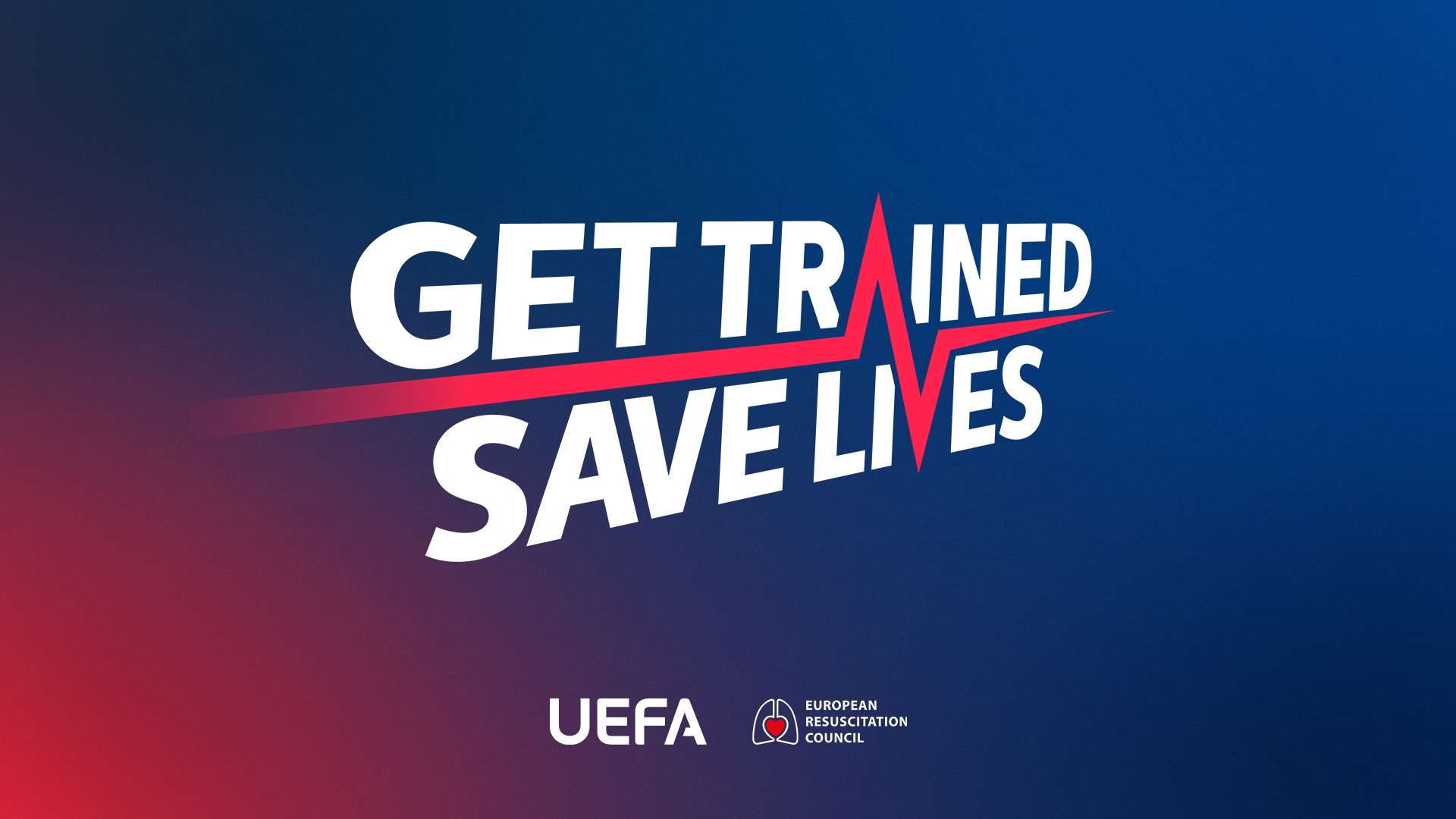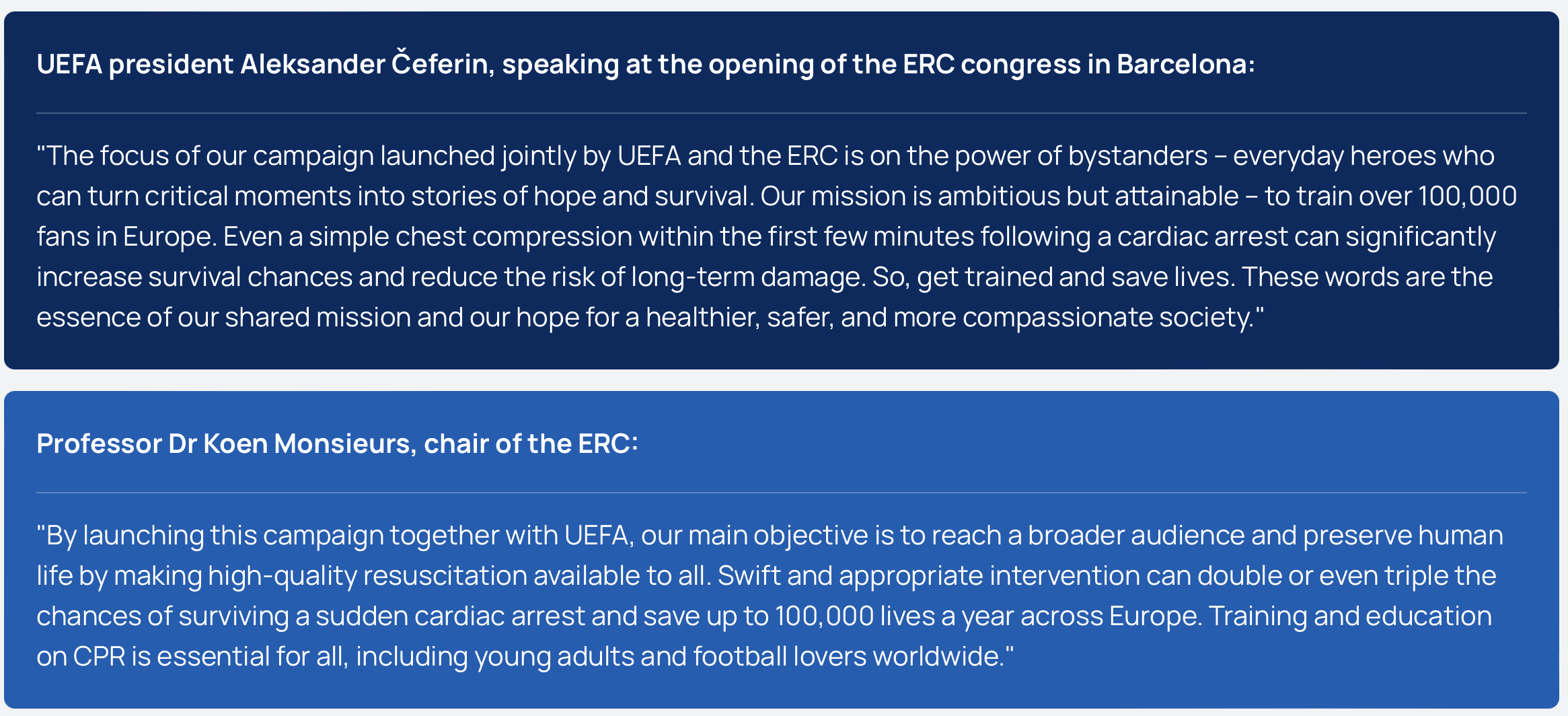
‘Get trained, save lives’ campaign to educate football fans in CPR skills.
UEFA and European Resuscitation Council campaign aims to educate more than 100,000 fans in basic CPR skills and provide in-person training to teams, officials, volunteers and staff at UEFA EURO 2024.
Following the partnership between UEFA and the European Resuscitation Council (ERC) announced earlier this year, both parties have today launched the ‘Get trained, save lives’ cardiopulmonary resuscitation (CPR) campaign at the ERC’s annual congress in Barcelona.
Sudden cardiac arrest is the third leading cause of death in Europe, happening to 1 in 1,000 people every year. In this situation, every minute that passes decreases the chances of survival by 10%. That is why CPR training is so important. Someone nearby when a person suffers a sudden cardiac arrest needs to be able to act quickly to save a life. Getting medical assistance and CPR immediately is crucial because every second counts.
Both organisations have already been working diligently together this year to encourage people to learn resuscitation. In the lead-up to the campaign launch, UEFA and the ERC have so far organised training for more than 2,700 players, coaches, referees, officials and staff at various finals and tournaments, such as the UEFA-CONMEBOL Women’s Finalissima at Wembley Stadium, the UEFA Nations League finals in the Netherlands and the UEFA European Under-21 Championship finals in Georgia and Romania, as well as the various UEFA youth and futsal finals.
Over 12,000 people will follow an in-person training course during the campaign. The programme will also include internal staff at UEFA and its 55 member associations, as well as teams and volunteers working at UEFA EURO 2024 in Germany.
The campaign aims to train fans through an interactive training course supported by Ruud Gullit and social media chatbots featuring well-known players. The campaign will receive extra attention during the EURO 2024 tournament, with a TV commercial and activities in all fan zones in the ten host cities in Germany.

The ‘Get trained, save lives’ campaign is part of UEFA’s commitment to ensuring the highest standards of medical care and preparedness within football. Since last year, UEFA’s minimum medical requirements stipulate that no UEFA match can start without an advanced life support ambulance and three automated external defibrillators (AED) on-site.
General medical precautions are in place at every UEFA match, ensuring all necessary medical equipment and items are available and functioning, and everybody is properly briefed and instructed on how to react in case such an emergency occurs. In addition, UEFA’s Football Doctor Education Programme trains over 1,000 football medical staff every year, while the HatTrick development programme allocates dedicated annual funding to each member association for medical education purposes.